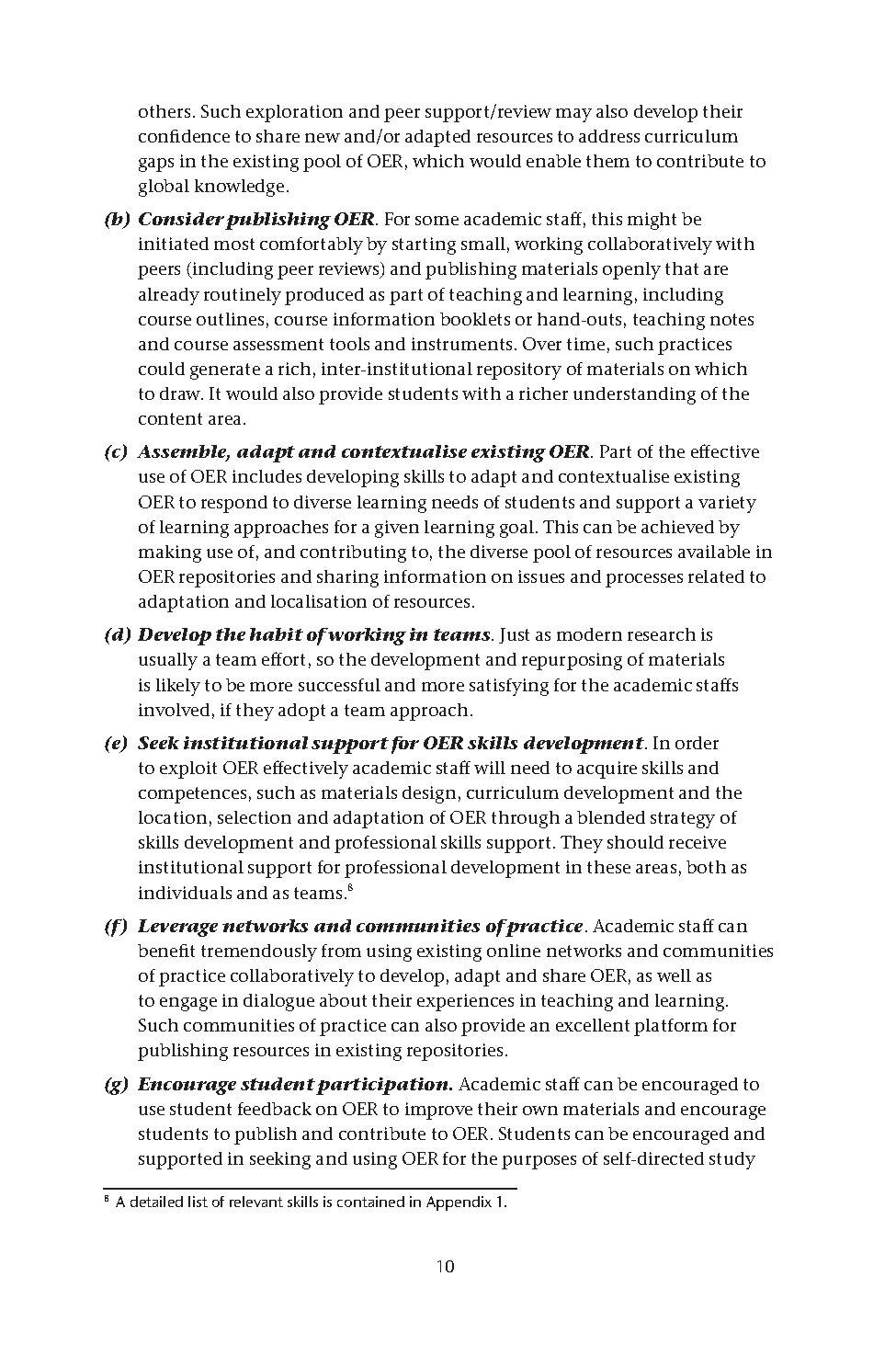This page has been validated.
- others. Such exploration and peer support/review may also develop their confidence to share new and/or adapted resources to address curriculum gaps in the existing pool of OER, which would enable them to contribute to global knowledge.
- Consider publishing OER. For some academic staff, this might be initiated most comfortably by starting small, working collaboratively with peers (including peer reviews) and publishing materials openly that are already routinely produced as part of teaching and learning, including course outlines, course information booklets or hand-outs, teaching notes and course assessment tools and instruments. Over time, such practices could generate a rich, inter-institutional repository of materials on which to draw. It would also provide students with a richer understanding of the content area.
- Assemble, adapt and contextualise existing OER. Part of the effective use of OER includes developing skills to adapt and contextualise existing OER to respond to diverse learning needs of students and support a variety of learning approaches for a given learning goal. This can be achieved by making use of, and contributing to, the diverse pool of resources available in OER repositories and sharing information on issues and processes related to adaptation and localisation of resources.
- Develop the habit of working in teams. Just as modern research is usually a team effort, so the development and repurposing of materials is likely to be more successful and more satisfying for the academic staffs involved, if they adopt a team approach.
- Seek institutional support for OER skills development. In order to exploit OER effectively academic staff will need to acquire skills and competences, such as materials design, curriculum development and the location, selection and adaptation of OER through a blended strategy of skills development and professional skills support. They should receive institutional support for professional development in these areas, both as individuals and as teams.[1]
- Leverage networks and communities of practice. Academic staff can benefit tremendously from using existing online networks and communities of practice collaboratively to develop, adapt and share OER, as well as to engage in dialogue about their experiences in teaching and learning. Such communities of practice can also provide an excellent platform for publishing resources in existing repositories.
- Encourage student participation. Academic staff can be encouraged to use student feedback on OER to improve their own materials and encourage students to publish and contribute to OER. Students can be encouraged and supported in seeking and using OER for the purposes of self-directed study
- ↑ A detailed list of relevant skills is contained in Appendix 1.
10
